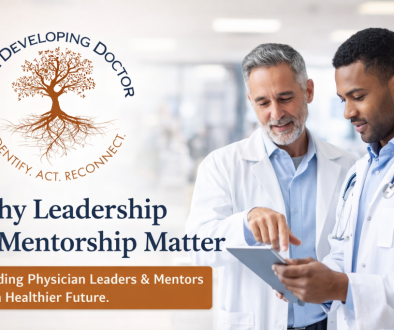Seamless Transition from Medical School to Residency: A Guide
Transitioning from medical school to residency is a critical step in the life of a physician. Every year on July 1st, thousands of new doctors begin residency and suddenly transition from being students to medical decision-makers. It’s widely recognized that this transition is one of the most stressful times in medical training. Changes to medical education, the residency match process, and residency orientation are required to make this difficult time easier.
Medical students are evaluated based on their performance.
Exams and clinical simulation focus on knowledge and testable clinical skills rather than their ability to work in the system. A student can graduate and be unable to perform fundamental tasks in the medical system, such as placing orders, acting as a consultant, counseling families, and responding to emergencies. Unsurprisingly, residents rarely struggle because of insufficient medical knowledge. The most common area of struggle is an inability to work in the medical system professionally.
Residents, by contrast, are evaluated based on their growth in 6 competencies: patient care, medical knowledge, interpersonal and communication skills, professionalism, practice-based learning and improvement, and systems-based practice.
Evaluations focus on what can be improved in each competency rather than what is correct. This transition from performance-based to growth-based evaluation can feel subjective and harsh. By utilizing growth-based evaluations and assessments during the final year of undergraduate medical education, medical schools can better prepare students for graduate medical education.
The residency match and selection process are also part of the problem.
It is time-consuming, stressful, and expensive for all involved. Although virtual interviews have decreased expenses, the time dedicated to the interview and recruitment process has not improved. Due to the many applications, programs rely on test scores and academic performance to rank applicants. Unfortunately, academic performance does not equate to readiness to work. Finally, the selection process is geared towards finding and filling positions rather than assuring a good match between learner goals and program mission. Modification of the residency interview and match process is needed.
Students submit residency applications almost a year before graduation. Medical schools and residency programs do not communicate after applications are submitted. That means residency programs do not know incoming trainees’ strengths and weaknesses. As a result, it can take six months to a year to identify significant gaps in knowledge or skills. The later the problem is identified, the less time is available for improvement. Developing a standardized, transparent medical school competency-based assessment shared with the learner and residency program would allow the learner and residency program to create meaningful individualized learning plans before residency training starts. Programs can also hold boot camps at the beginning of residency to ensure trainees start on even footing.
Residency occurs during a pivotal time for young adults.
New residents commonly marry, start families, move across the country, and have a large amount of education-related debt. Holding activities to develop connections during residency can create a sense of belonging and reduce feelings of isolation after moving to a new location. It isn’t possible to eliminate all of life’s stressors, but a robust support system makes them more manageable.
In conclusion, it is essential to change undergraduate medical education, the residency match process, and the onboarding process to make the transition from medical school to residency smoother. By aligning the competencies used to evaluate medical students and residents, refining the residency interview and match process, holding entrance career coaching sessions in residency, starting residency with a boot camp, holding activities to develop social connections, providing financial counseling, and improving communication between medical school and the residency program, we can help to reduce the stress associated with the transition.





